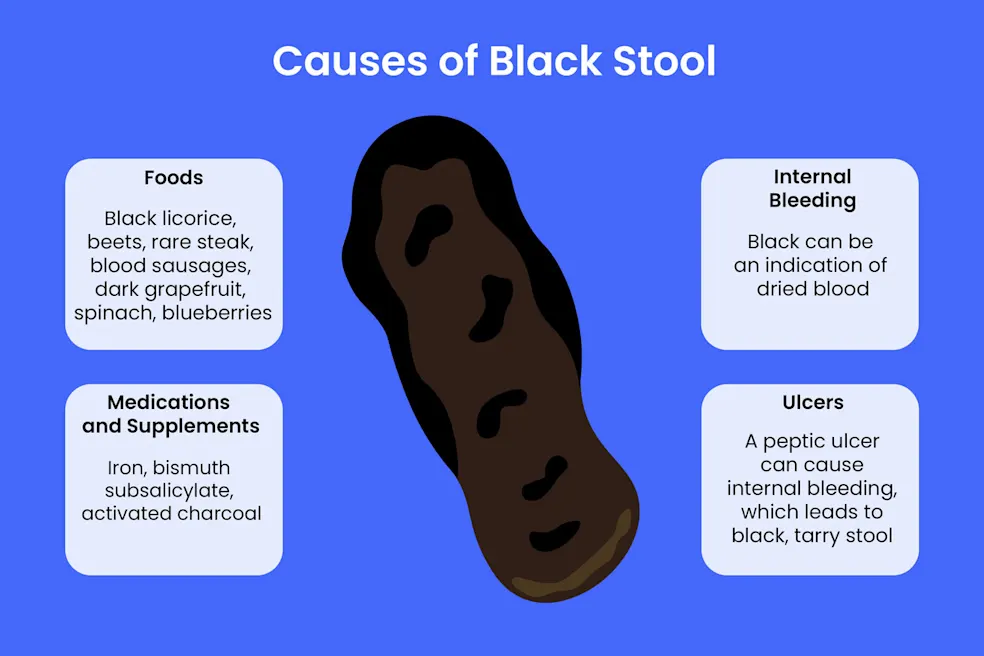Black Tarry Stools (Melena)
:max_bytes(150000):strip_icc():format(webp)/VWH-MichelaButtignol-CausesofBlackStool-Standard-3178977011bf45a2ad006914d192e18e.jpg)

Overview
Black tarry stools, medically referred to as melena, indicate the presence of digested blood in the stool. This condition often results from bleeding in the upper gastrointestinal (GI) tract, such as the esophagus, stomach, or duodenum.
Causes
- Upper Gastrointestinal Bleeding:
- Peptic Ulcers
- Gastritis
- Esophageal Varices
- Mallory-Weiss Tear
- Dietary Factors:
- Foods like black licorice and blueberries can darken stool color.
- Medications such as bismuth subsalicylate (Pepto-Bismol) may also cause dark stools.
- Lower Gastrointestinal Bleeding:
Although less common, bleeding from the lower GI tract may result in dark stools if the blood is digested before reaching the rectum.
Symptoms
Common symptoms associated with black tarry stools include:
- Black, sticky stools
- Abdominal pain or discomfort
- Nausea or vomiting, possibly with blood
- Weakness or fatigue
- Dizziness or fainting
Diagnosis
If a person presents with black tarry stools, a healthcare provider may perform the following:
- Medical history and physical examination
- Laboratory tests to assess hemoglobin levels
- Endoscopy to visualize the upper GI tract and identify the source of bleeding
- Imaging studies, such as CT scans, to evaluate the gastrointestinal tract
Management
The management of black tarry stools depends on the underlying cause:
- Stabilization: If significant bleeding is suspected, immediate medical attention is required, involving IV fluids and blood transfusions.
- Medications: Treatment may include proton pump inhibitors (PPIs) for peptic ulcers, antibiotics for infections, or other specific treatments based on the diagnosis.
- Surgical Intervention: In cases of severe bleeding or complications, surgical procedures may be necessary to control the source of bleeding.
When to Seek Medical Attention
Black tarry stools are considered a medical emergency. Seek immediate medical attention if:
- You experience black tarry stools, especially if accompanied by severe abdominal pain, vomiting blood, or signs of shock (e.g., rapid heartbeat, fainting).
Conclusion
Black tarry stools are a significant symptom that may indicate upper gastrointestinal bleeding or other serious conditions. Timely diagnosis and treatment are essential for addressing the underlying cause effectively. Individuals experiencing this symptom should seek medical attention promptly to ensure proper evaluation and management.

إرسال تعليق